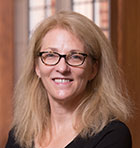Endeavor to change: Preparing for your future
Don’t let the class name fool you - this is more than your average math class!
-
Coursework Overview
The coursework for this Endeavor community involves taking a one-unit course in the fall semester and a half-unit course in the spring semester, both taught by Dr. Dumbaugh.
Fall 2022 Semester Spring 2023 Semester MATH 211: Calculus I (1 unit) FYS 100: A Life in Letters (1 unit) MATH 211 satisfies a general education requirement for symbolic reasoning (FSSR), a required course for students interested in business or any bachelor of science degree program.
FYS 100 satisfies a general education requirement; students are required to take one first-year seminar (FYS) during each of their first two semesters at Richmond.
-
Specific Course Information
MATH 211: Calculus I
“Endeavor to Change: Preparing for your Future” uses the traditional content of calculus as an ideal platform to engage in dialogue about challenging, contemporary issues, consider ideas from various perspectives, and recognize differences between local and global behavior, among others. It also affords the opportunity to cultivate and identify workplace skills acquired through learning Calculus such as, although not limited to, strategic problem solving (breaking larger problems into smaller pieces, for example), collaboration with teams of diverse group members to complete challenging tasks, and boosting confidence through overcoming challenges. The content of Calculus necessarily emphasizes the mathematical tools to measure change and extends this focus on change beyond the classroom.
FYS 100: A Life in Letters
In a letter Isaac Newton informed Robert Hooke, “If I have seen further, it is by standing on the shoulders of giants.” In a letter Pete Docter, award winning director of Monsters, Inc. and Up, admitted “our [Pixar] films don’t get finished, they just get released.” In a letter Clementine Churchill confessed to her “darling Winston” that “I have noticed a deterioration in your manner; & you are not so kind as you used to be.” This single line from Clementine Churchill takes the reader inside the intimacy of a personal---and political---relationship. The reader learns, at once, that for all his power and influence, Winston Churchill had at least one person who spoke candidly with him. The letter also raises the compelling question about how Winston would have received this criticism had Clementine chosen to say these words in person instead of offering her husband the time for reflection that comes with correspondence? This course is designed to use correspondence as a way to explore critical questions and issues students face in their lives. These epistolary conversations will provide students with an intimate look at the lives of their correspondents. Those individual biographies, in turn, will offer students a refined lens to reflect on their own lives. The topics of these conversations will offer students a new perspective on critical questions of life related to love, identity, and integrity, among others.
-
Faculty Information

Dr. Della Dumbaugh is Professor of Mathematics and Editor, American Mathematical Monthly -
Roadmap Short Course Information
As part of the Endeavor program, you will participate in the popular Roadmap to Success pre-orientation program, where you will take a short course led by Dr. Dumbaugh.
Short Course Description: Preparing for Your Future: Developing Systems for Success
Do you set goals? Do you achieve them? In his New York Times bestseller, Atomic Habits, James Clear suggests that we forget about setting goals and, instead, focus on developing daily systems that move us towards success. Clear outlines a connection between small, daily actions and large favorable outcomes. He shows you how “every action you take is a vote for the type of person you wish to become.” Using Atomic Habits as our guide, this course explores systems for success in the classroom and beyond.